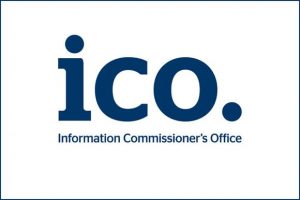“5 Years of Innovation in the next 18 months” – Part 4
In this last part of the series, I’m going to talk a little about the Cashroom. What are we doing to change things up and innovate in the post COVID environment.
First, a quick recap on where we are, and how the lockdown affected us.
We decided to “lockdown” about a week before the official announcement. We initiated our business continuity plan and went from having 85 people fully operational in the office, to having 85 people fully operational at home, in just over a week. I’m not going to pretend it was easy (it wasn’t), nor that it went entirely smoothly (it didn’t), but we did it and I think (hope!) most of our clients didn’t noticed any service disruption as a result of the transition.
When the government announced their financial support, we knew we had to take advantage of it. Volumes were dropping across out client base, and some clients were finding it tough. So, while it broke my heart to do so, we made the difficult decision to furlough 31 members of staff. I spoke to them all personally, explained the situation, assured them we would do our best to make sure they all came back, and spent the rest of the evening drinking heavily!
Also like many of our clients, we (successfully) applied for a COVID Business Interruption Loan, took advantage of the VAT deferral, and negotiated with our creditors.
Long story short, we are emerging from lockdown, blinking in the sunlight, and preparing for the new normal.
So what are we doing?
Return from Furlough
As of the beginning of July, we’re bringing all staff back from furlough, at least part time.
We’re not doing it because we think work volumes will have returned by then. We’re doing it to free up “idle” capacity in the business to be able to work on all the initiatives and projects we have underway that never seem to get the attention they need.
You all know what I’m talking about, the change initiative that never seems to quite get over the line, because those involved have “day jobs” delivering client services that always take priority. Well, by bring everybody back from furlough before we “need” them, we hope to create the capacity we need to drive through that change.
And talking about change…!
Premises
The lease on one of our offices is up at the end of August. We have decided not to renew or replace it. We will lose around 40% of our office space. The enforced home working has shown that we do not need everybody in one place – home working … works!
In the short to medium term, we will need to make changes around booking desks, social distancing, “Hot-desking” and deep cleaning, but in the longer time we plan to have only around 50% of our workforce in the “office” at any one time.
Technology
We have recently completed a deal to acquire a small technology business, bringing in house, the expertise we have to date outsourced.
An odd move for an outsourcing business, you might think. However, outsourcing works when you’re outsourcing a non-core function (e.g. your accounts team!). Over the last year or so it’s become clear that technology is in fact a core function at the Cashroom, and crucial to our future growth and development.
And talking about technology…!
Automation
Over the next few weeks we’re trialling a new development to our client Portal. It takes advantage of the new Open Banking regulations to automatically set up payments based on instructions received from clients into the Portal. That means there is no need for our cashiers to log onto the client’s bank account, to set up the payment, increasing accuracy and security.
That’s only one example of how future developments of our technology platform will drive efficiency and accuracy.
It seems we’re a “Fintech” business now!
So, we’re being bold, and are trying to innovative and creative. We know not everything we try will succeeded, and that’s OK, because we’ve given ourselves permission to “fail” as long as we do it fast, in a safe environment, and learn.
“Gulp…!”
David Calder, Managing Director at The Cashroom Ltd

 In 1942, after the battle of El Alamein, Churchill said …..
In 1942, after the battle of El Alamein, Churchill said ….. I was fortunate enough to attend the Legal Futures Innovation Conference in London at the end of last year. This is one event that always manages to draw some of the leading lights in the legal sector to talk and share their experiences, news and views on what the future may hold for the profession, and delivery of legal services.
I was fortunate enough to attend the Legal Futures Innovation Conference in London at the end of last year. This is one event that always manages to draw some of the leading lights in the legal sector to talk and share their experiences, news and views on what the future may hold for the profession, and delivery of legal services. A very basic example – using double computer screens for staff who regularly have to take information/data from one location e.g. an email, and enter it into another, e.g. your practice management system, or online banking platform. The time saving, and increased accuracy of data entry, multiplied by the amount of times the activity is done on a daily/weekly/monthly/yearly basis, is significant. The cost is as little as about £80 for an extra screen!
A very basic example – using double computer screens for staff who regularly have to take information/data from one location e.g. an email, and enter it into another, e.g. your practice management system, or online banking platform. The time saving, and increased accuracy of data entry, multiplied by the amount of times the activity is done on a daily/weekly/monthly/yearly basis, is significant. The cost is as little as about £80 for an extra screen! Legal process outsourcing enables legal teams to focus on what they do best. This is important as modern law firms have to be agile, allowing them to move in and out of legal markets as demand changes. Traditionally, providing new service offerings may have necessitated the hiring of new resources, training, and the implementation of new systems and processes, but in the age of legal process outsourcing, law firms can now focus on their core competencies.
Legal process outsourcing enables legal teams to focus on what they do best. This is important as modern law firms have to be agile, allowing them to move in and out of legal markets as demand changes. Traditionally, providing new service offerings may have necessitated the hiring of new resources, training, and the implementation of new systems and processes, but in the age of legal process outsourcing, law firms can now focus on their core competencies. Once these daily tasks have been done, we then focus on queries from our clients and ensuring any ad-hoc tasks are completed. This can range from our regular compliance checks (credit balances not moved in two months for example) to preparing a purchase ledger payment run. Different practice management systems are not the only challenge that we face. Our clients work in various locations and practice different types of the Law.
Once these daily tasks have been done, we then focus on queries from our clients and ensuring any ad-hoc tasks are completed. This can range from our regular compliance checks (credit balances not moved in two months for example) to preparing a purchase ledger payment run. Different practice management systems are not the only challenge that we face. Our clients work in various locations and practice different types of the Law. The vast opportunity of increased legal innovation and efficiency
The vast opportunity of increased legal innovation and efficiency Law firms are also realising the importance of law firm efficiency by freeing up resources to work on more complex and, ultimately, higher-value work. In addition to technology, outsourcing of essential business services is enabling internal legal resources to focus on what they do best – practice law. Small, medium, and large Solicitor practices are increasingly utilising the knowledge and skills of external business services, including cyber security specialists, IT, and financials (
Law firms are also realising the importance of law firm efficiency by freeing up resources to work on more complex and, ultimately, higher-value work. In addition to technology, outsourcing of essential business services is enabling internal legal resources to focus on what they do best – practice law. Small, medium, and large Solicitor practices are increasingly utilising the knowledge and skills of external business services, including cyber security specialists, IT, and financials ( According to the UK’s
According to the UK’s  When assessing law firm data security risks where third parties are used to process data on behalf of the controller, it is essential to ensure that the processor is able to comply with their legal obligations under GDPR – this should not just be assumed. Failure to verify this could lead to a ‘supply chain compromise’ whereby the third party fails to adequately secure the IT systems that hold your (and your clients) data.
When assessing law firm data security risks where third parties are used to process data on behalf of the controller, it is essential to ensure that the processor is able to comply with their legal obligations under GDPR – this should not just be assumed. Failure to verify this could lead to a ‘supply chain compromise’ whereby the third party fails to adequately secure the IT systems that hold your (and your clients) data. 6000 people in the UK still have a black and white TV licence. 6000! Why on earth is that the case in 2020?
6000 people in the UK still have a black and white TV licence. 6000! Why on earth is that the case in 2020?  After all, the cost of something is always relative to the worth it represents to the buyer, isn’t it?
After all, the cost of something is always relative to the worth it represents to the buyer, isn’t it? OK or Even Keel – This is when your prospective clients are basically happy with their lot. It does not mean they are not a potential buyer, just that they don’t perceive an urgent need for what you’re selling. With this kind of client, it’s important to stay in communication. Keep them informed of your services and products. Make them aware of the benefits of working with you. But don’t in any way go for the hard sell. You want to be in their mind when they move into one of the other two modes.
OK or Even Keel – This is when your prospective clients are basically happy with their lot. It does not mean they are not a potential buyer, just that they don’t perceive an urgent need for what you’re selling. With this kind of client, it’s important to stay in communication. Keep them informed of your services and products. Make them aware of the benefits of working with you. But don’t in any way go for the hard sell. You want to be in their mind when they move into one of the other two modes. Hope or Aspiration – these clients are a different challenge. Perhaps they are growing a business or trying to do deals. They have a big idea and they are buying your services as part of a strategic plan. You will need to convince them you can match their requirements and ambitions with a service that enables them to achieve their goals. Should you consider a more project based approach to deliver your services in alignment with the client’s timescales, and should that lead to a slightly different discussion around pricing?
Hope or Aspiration – these clients are a different challenge. Perhaps they are growing a business or trying to do deals. They have a big idea and they are buying your services as part of a strategic plan. You will need to convince them you can match their requirements and ambitions with a service that enables them to achieve their goals. Should you consider a more project based approach to deliver your services in alignment with the client’s timescales, and should that lead to a slightly different discussion around pricing?
 It’s no secret that law firms are a particular target for cyber criminals, so it’s imperative to find out what defences an outsourced legal cashiering firm have in place.. At The Cashroom, we offer a secure end to end encrypted online portal to allow internal and external stakeholders to communicate and share information. We also hold an industry leading
It’s no secret that law firms are a particular target for cyber criminals, so it’s imperative to find out what defences an outsourced legal cashiering firm have in place.. At The Cashroom, we offer a secure end to end encrypted online portal to allow internal and external stakeholders to communicate and share information. We also hold an industry leading  The news is regularly showcasing headlines about companies experiencing cyber breaches, as criminals refine their skills, finding sophisticated ways to get their hands-on personal data and intercept financial transactions. So when was the last time you reviewed your law firm data security?
The news is regularly showcasing headlines about companies experiencing cyber breaches, as criminals refine their skills, finding sophisticated ways to get their hands-on personal data and intercept financial transactions. So when was the last time you reviewed your law firm data security? It is not surprising that more law firms are turning to portal technology to protect client and business information given the increased vulnerabilities to email communication.
It is not surprising that more law firms are turning to portal technology to protect client and business information given the increased vulnerabilities to email communication. detailed plan for the future. Sure, there were appraisals and performance reviews which set goals, and identified areas for improvement, but they were concerned more with performing better in your current role, rather than planning and preparing for future roles, and areas of interest. Have a think for moment – does your firm have a plan for developing its key people for the future?
detailed plan for the future. Sure, there were appraisals and performance reviews which set goals, and identified areas for improvement, but they were concerned more with performing better in your current role, rather than planning and preparing for future roles, and areas of interest. Have a think for moment – does your firm have a plan for developing its key people for the future? So, perhaps there is some food for thought here for discussion at your next Partners meeting. Do you have the same people in mind to take over the reins, and how are you going to equip them with the skills to do so? I would suggest putting a realistic plan together, with clear and achievable objectives, put it in to practice as soon as possible, and keep in regular dialogue with the people involved. They will likely be motivated by the opportunity, bringing better engagement immediately, and more seamless business continuity and succession into the future.
So, perhaps there is some food for thought here for discussion at your next Partners meeting. Do you have the same people in mind to take over the reins, and how are you going to equip them with the skills to do so? I would suggest putting a realistic plan together, with clear and achievable objectives, put it in to practice as soon as possible, and keep in regular dialogue with the people involved. They will likely be motivated by the opportunity, bringing better engagement immediately, and more seamless business continuity and succession into the future.